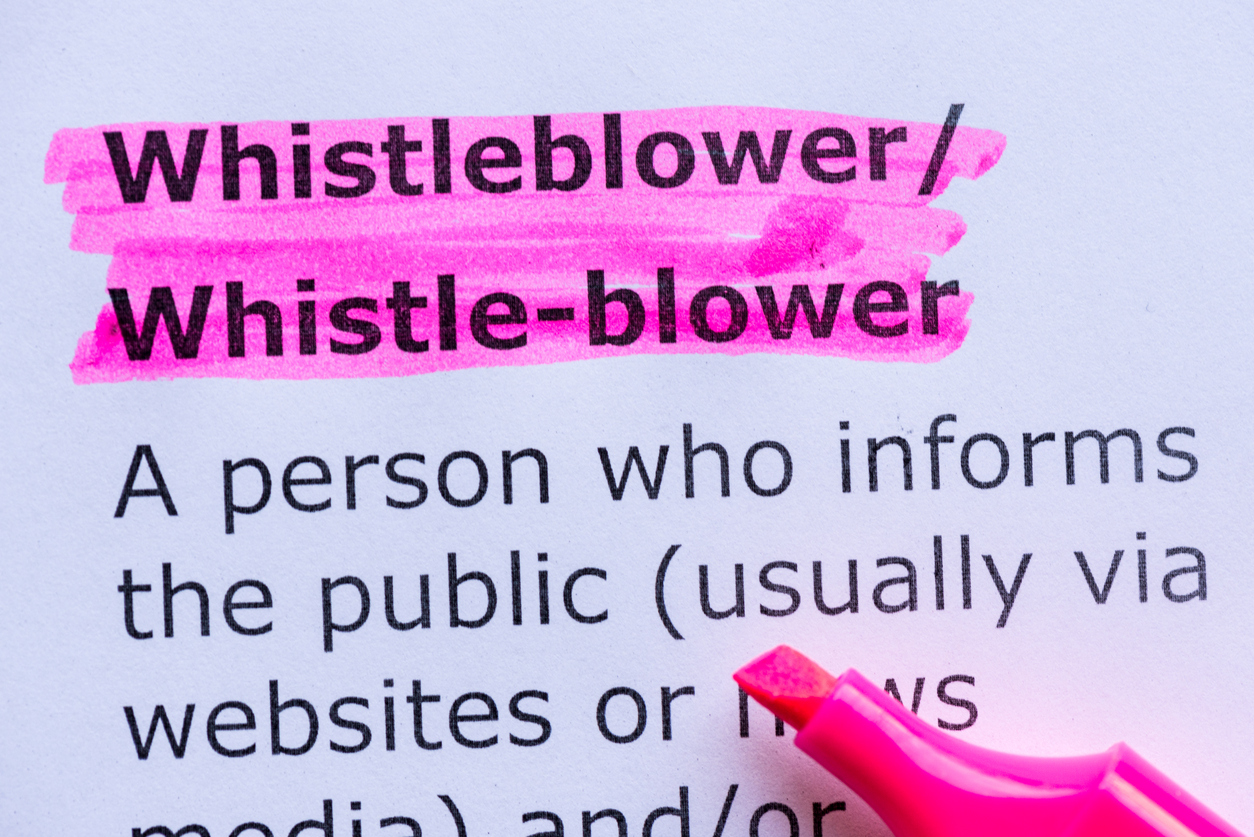April 3, 2020 | Whistleblowers

Whistleblowers are vitally important during a time of national crisis. The False Claims Act is the primary weapon used by the Department of Justice to combat fraud against the federal government. President Abraham Lincoln wrote it during another national crisis – the Civil War. Lincoln wrote the law to enlist the public as private attorneys to combat rampant defense contracting fraud undermining the army. The False Claims Act empowers private citizens with knowledge of fraud on the federal government to hire a lawyer and file suit on behalf of the United States to recover funds wrongfully taken from our federal treasury. The whistleblower can be awarded between 15% and 30% of the Government’s recovery for exposing and providing evidence of the fraud.
Report COVID-19 Stimulus Fraudsters
During the COVID-19 crisis and the $2.2 trillion stimulus enacted by Congress to address the virus’s economic impacts, unscrupulous businesses and individuals are likely to try to take advantage and wrongfully obtain our tax dollars, which were meant to help those truly in need.
This fraud may come in many forms: fraudulently claiming eligibility on an application for loans or grants for which the person or business does not qualify; obtaining payroll protection loans and then fraudulently claiming the business met the requirements to have the loans forgiven; fraud in providing equipment or supplies the Government has ordered to combat the virus; falsifying quality tests for equipment ordered by the Government to combat the virus; fraudulently claiming eligibility for stimulus funds for which an individual or business does not qualify. We need courageous whistleblowers to step forward and report this type of fraud.
Liability under the False Claims Act
The False Claims Act holds fraudsters liable in a variety of ways. Liability under is statutory and is based upon a violation of one of the seven subsections of the FCA found in 31 U.S.C. §3729(a)(1). The primary violations are:
(A) knowingly presents, or causes to be presented, a false or fraudulent claim for payment or approval;
(B) knowingly makes, uses, or causes to be made or used, a false record or statement material to a false or fraudulent claim;
(C) conspires to commit a violation of subparagraph (A), (B), (D), (E), (F), or (G);
(D) has possession, custody, or control of property or money used, or to be used, by the Government and knowingly delivers, or causes to be delivered, less than all of that money or property;
(E) is authorized to make or deliver a document certifying receipt of property used, or to be used, by the Government and, intending to defraud the Government, makes or delivers the receipt without completely knowing that the information on the receipt is true;
(F) knowingly buys, or receives as a pledge of an obligation or debt, public property from an officer or employee of the Government, or a member of the Armed Forces, who lawfully may not sell or pledge property; or
(G) knowingly makes, uses, or causes to be made or used, a false record or statement material to an obligation to pay or transmit money or property to the Government, or knowingly conceals or knowingly and improperly avoids or decreases an obligation to pay or transmit money or property to the Government.”
Damages
If a defendant is found guilty of violating one of the seven false claim subsections, 31 U.S.C. §3729(a) provides that the court shall assess “three times the amount of damages which the government sustains because of the act of that person…” The calculation of damages is simply stated – that is damages are the difference between what the government actually paid minus what the government either received or should have paid had the claim or statement not been false. If the Government loans or grants money based on a falsified application, the damages can be three times the amount of the loan or grant.
In addition to those damages, the court must also assess a civil penalty of not less than $5,500 and not more than $11,000 (currently $11,665 to $23,331) for each false claim. For example, each falsified application for stimulus funds, each falsified application for a stimulus grant, each over inflated or falsified invoice, each falsified quality certification, electronic healthcare claim for payment, UB-92, CMS form 1500 submitted for payment would be a separate false claim subject to penalty. The same is true for any document created or submitted to support the claim.
The Whistleblower’s Share
For the whistleblower’s efforts in bringing the fraud and evidence to the attention of the government and prosecuting the lawsuit, a qualifying whistleblower is entitled to share in any recovery by way of verdict or settlement. The amount of the whistleblower’s share is between 15-30% of the recovery depending on a number of factors and the amount of assistance the whistleblower and his or her lawyer provided to the Government.
How to Report COVID-19 Stimulus Fraud to the Government
The attorneys at Minner Vines Injury Lawyers, PLLC have over 70 years of combined experience handling False Claims Act cases and have recovered over $1.7 billion for the United States Treasury. We can help you prepare your evidence for reporting to the Government so that your case receives the attention it deserves.
Contact Our Personal Injury Law Firm in Kentucky Today To Get More Information
If you’ve been injured in an accident in Lexington or Bowling Green, please contact our car accident lawyers at Minner Vines Injury Lawyers, PLLC for a free case evaluation.
Minner Vines Injury Lawyers, PLLC -Bowling Green, KY Office
814 State St. suite 100, Bowling Green, KY, 42101
(270) 517-2014
Minner Vines Injury Lawyers, PLLC – Nashville Office